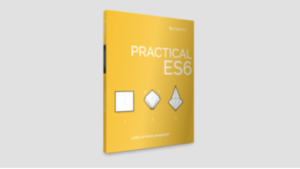I last asked this question in 2010: should all web designers have coding skills?
The SitePoint poll results surprised me:
- 70% of respondents said designers should have good coding skills
- 25% stated that basic knowledge is adequate
- 5% thought a good designer could create a great design without coding experience.
The term “web designer” is subjective and means different things to different people. To some, it equates to “designer” or “graphic artist”. To others, it’s someone possessing good front-end coding skills who can create an HTML and CSS layout with JavaScript interactions. There is an infinite variety between those two extremes.
The arguments which support having coding skills:
- a basic knowledge of web technologies can be obtained quickly and the resources are free
- coding knowledge helps designers talk the same language as the developers building the site
- it helps designers avoid elementary mistakes
- all artists should understand the medium they are working with
- a designer with coding knowledge is more valuable than a similarly talented designer without.
The arguments against coding skills:
- a talented designer will do great things without coding knowledge
- time is precious: it’s difficult to learn coding and keep up with the rapid pace of development
- an architect does not need to understand plumbing or electricity supply; that can be handled by an expert in those fields
- if you don’t understand code, you aren’t constrained by limitations and can push the boundaries of the web.
I summarized my opinion at the time: designers should understand the basics to avoid mistakes. Advanced coding abilities should not be necessary but an appreciation of web page construction is essential.
What’s Different in 2013?
Web development has become increasingly specialized. A decade ago we didn’t have roles such as digital strategists, social media specialists or SEO copywriters. The jack-of-all-trades term “webmaster” is no longer used or relevant.
Web jobs have been siloed; even freelancers can make a good living from ‘just’ graphic design, JavaScript coding or database creation.
However, there has been one major change which affects everything: Responsive Web Design. It’s no longer practical to provide a single Photoshop mock-up since it cannot illustrate all layout and animation possibilities (arguably, it never could). Ideally, designers should produce interactive browser-based prototypes. There are tools to help, but solid coding skills are beneficial — if not vital.
That said, you need to start somewhere. Photoshop images or hand drawings are a reasonable first step. But can you make a living from it?
Curiosity is Key
I have worked with great designers who had little coding knowledge. Similarly, I have worked with mediocre designers who had good coding abilities. However, the web has moved beyond the fixed-width designs which were prevalent a few years ago. A designer who does not appreciate the subtle complexities will struggle to create a usable mock-up.
In my opinion, a good web designer is interested in the web. I wouldn’t necessarily expect them to hand-code a grid layout, but they should at least understand what a grid layout is and how it can be adapted for different screen sizes.
Embrace the web as a medium. A little time spent analyzing the primary building blocks will make you a more valuable asset and improve your output.
Or do you disagree? Can a web designer still do great things with little more than a passing interest in web technologies?
Craig is a freelance UK web consultant who built his first page for IE2.0 in 1995. Since that time he's been advocating standards, accessibility, and best-practice HTML5 techniques. He's created enterprise specifications, websites and online applications for companies and organisations including the UK Parliament, the European Parliament, the Department of Energy & Climate Change, Microsoft, and more. He's written more than 1,000 articles for SitePoint and you can find him @craigbuckler.






